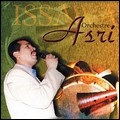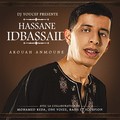Ramadan is finally here and everybody is excited to live the yearly 30-day spiritual experience. During this holy month, the daily life of Moroccans changes completely, different sleep hours, a slower lifestyle and pace and a greasy and sugary diet. Unfortunately not every Moroccan has got the chance to spend Ramadan with family and enjoy its unique vibes and eat the delicious traditional dishes.
For the Moroccan community residing in Europe things do not resemble what Ramadan looks like back home. Yabiladi spoke to a number of Moroccans who spent and will spend this holy month away from the Kingdom. Living in the UK, the Netherlands, Germany, Italy and France, they have all given us an idea about their daily routine during the fasting month.
Differences
Many changes occur at the beginning of Ramadan here in Morocco, work hours shrink, food prices increase and mosques get crowded. Moroccans living abroad, contacted by Yabiladi all indicated in a way or another that Ramadan's lifestyle back home displays a lazy vibe. In Europe, while fasting, Muslims are forced to adapt without bringing changes to their normal and usual routine.
Rababe who lives in France is quite unhappy about the way people live during Ramadan in Morocco, «during Ramadan in Morocco everything is pending». The young legal assistant explains that : «I am not used to being lazy because I am active all year long in France. In Morocco everybody is slow during that period of the year even administrations. I dislike this way of life». Abdeljalil, a Marrakchi native settled down in Bergame, Italy couldn't agree more, «I don't understand why Moroccans become angry and aggressive during this holy month. They tend to sleep all day long, refuse talking to each others and get outraged easily», Abdeljalil sighs.
Samira, on the other hand, married and mother of two children living in Frankfurt, Germany thinks that : «there are a lot of differences between fasting in Morocco and Germany. I believe that spending Ramadan here is better for the kids, I don't think they can survive it in the hot weather of Morocco. It is quite fresh and bearable here although we have to fast for 19 hours». She added that : «even though we go to work, our bosses understand that we are fasting and usually allow us a half hour break to eat when we are forced to stay late at the office. It is better than nothing !»
In Montpellier, Myriam thinks that Ramadan there lacks all the good vibes that we can feel back home. «In Morocco we feel that it is Ramadan, we live it. Unlike here where everybody is eating throughout the day and the heat makes it hard for us», the 20-year-old students argues.
It is completely the opposite in the Netherlands where everybody is excited about the holy month including locals. Massira who lives in Amsterdam has been surprised by Dutch peole being curious whenever Ramadan is there, «As weird as it sounds, people here in the Netherlands take part to the whole process of celebrating and enjoying Ramadan. For example they participate to offering food. They love exploring our traditions and culture during this holy month.»
Students have also a lot to say about spending Ramadan abroad. It is the case of Othmane who lived for 7 years in the UK and who spent a year in Mexico. The young man went through two different experiences in the two countries. «During my uni years in the United Kingdom I was living on campus. In the first couple of years I used to go to the mosque where Islamic charities offered free breakfast. It was practical for me as a student and helped me save money». In Mexico, fasting was challenging for Othmane : «It was very difficult because I was the only Moroccan there». Indeed, according to him, official statistics had shown back in the time that only 52 Moroccans were living in the Latin American country. «Mexicans wouldn't understand why I was not eating during the day as opposed to England where fasting was accepted and understood», Othmane concluded.
One thing that our Moroccans living abroad agree about is food prices. Generally speaking, whenever Ramadan is here, prices increase dramatically. «It is better to spend Ramadan in France since prices are not affected, unlike Morocco where everything is expensive when it comes to food», Rababe declares. Samira also noticed the same thing stating that prices augment suddenly during Ramadan in the Kingdom : «Thank God food prices do not change here. It is not the case in Morocco as they increase instead of decreasing».
Similarities
Although, spending Ramadan in Europe is not similar to fasting in Morocco, there are some things that Moroccans tend to preserve and revive whenever this month is around. Abdelaziz, who works as the manager of a Moroccan restaurant is all about bringing on the Ramadan vibes. «The restaurant's menu includes every Ramadan a Ftour for my clients. This aims at creating an intimate ambiance. With family or friends, patrons are always happy to be gathered around the Ftour table».

Family reunions are what makes Ramadan enjoyable. For Samira, «it is important for us to eat all together in a warm atmosphere. That is why we spend time preparing delicious dishes to eat all the food we like». Harira is one of the notorious dishes that can find its way to every ftour table, «For my mother, Harira is a must alongside other goodies like shebakia, dates and Zemita», Myriam recalls insisting that : «During Ramadan we all gather to eat Ftour including my brothers».
«When I am working I can buy things around where I live. There are plenty of Moroccan and Syrian shops where I can purchase delicious food just like Morocco. I try to cook the same things I used to eat during Ramadan back home», Rababe points out.
Just like in Morocco, Moroccans in Amsterdam and Europe practice their faith during this month. «Everybody goes to the mosque the evening to pray. It is true that people go often more frequently during the weekend. We do have mosques just next to our places», Massira explains.
No Moroccan derogates from the rule, Ramadan has its customs that must be respected. Every Ramadan is unique and allows every Moroccan to reconnect with his or her roots anywhere in the world.




 chargement...
chargement...












